Designing habitats that work
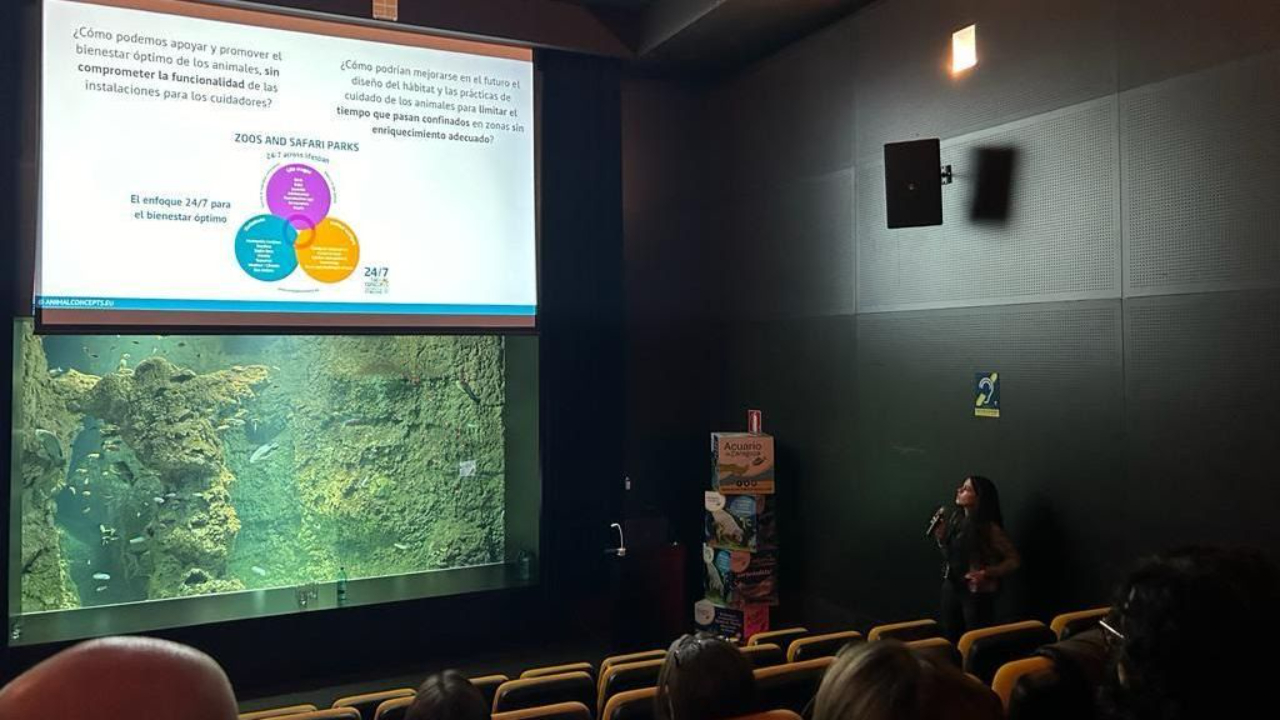
Melody presented at the AICAS conference
By presenting at the Iberian Association of Wild Animal Caretakers (AICAS) ninth Congress, Melody:
- Encouraged empathy: by asking "do you know what the animals in your care do, while you're not there?". Some participants noted that they had not thought about this much before.
- Made learning and interconnection accessible: by presenting in Spanish more animal caregivers were able to consider the individual's needs of their animals, alongside their own wellbeing needs. Making important links between quality of work and quality of life for both.
- Supported creativity: because despite the shared challenges of limited time and money, people started to ask...
"How can we re-design a habitat for it to be functional and positive from the animal’s perspective?"
Find out by listening to the podcast
Last week, The Animal Behaviour Management Alliance invited Sabrina to talk about animal wellbeing science and practice.
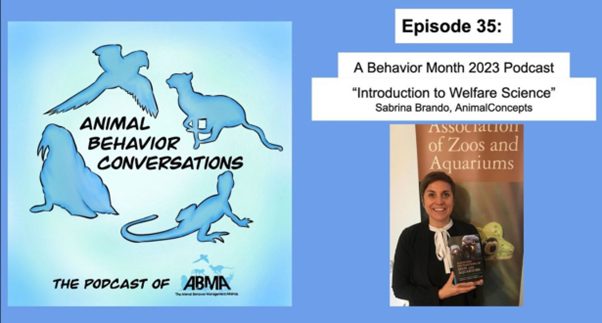
Sabrina shared her though...
Anxiety and empathic strain working with animals, International Day for Biological Diversity & SiP #152 Giraffe drinking behaviour
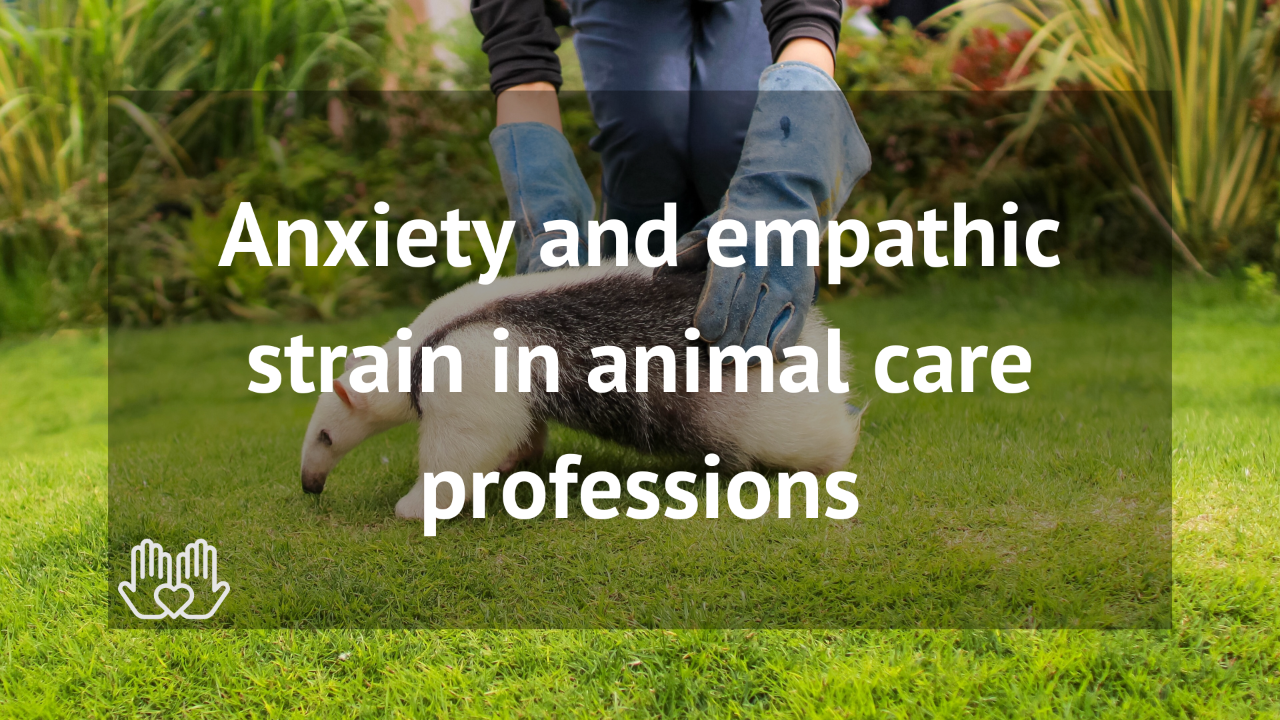
The joys and sorrows in animal care professions
Mental Health Awareness Week took place last week. The official theme for this year, as set by the Mental Health Foundation, was ‘anxiety'. It is key to highlight the importance of mental health and the challenges many people face as well as the joys of this work, possible resources and solutions. It promotes open dialogues regarding mental health, offers knowledge about accessible resources and support networks, and advocates for self-care and we-care practices that enhance wellbeing, which are part of care, respect, and real love in the workplace.
The nature of the job
Various factors can trigger feelings of anxiety, such as the stress of exams, relationships, the beginning or loss of a job, and other life events. Experiencing anxiety while working at zoos, aquaria, sanctuaries or other animal institutions can be a challenge for some individuals. Working with animals involves the pressure to ensure the wellbeing of the animals, handl...
The importance of nutrition podcast, Innovative ways you can reduce food waste & SiP #151 Browse silage in zoo animal nutrition
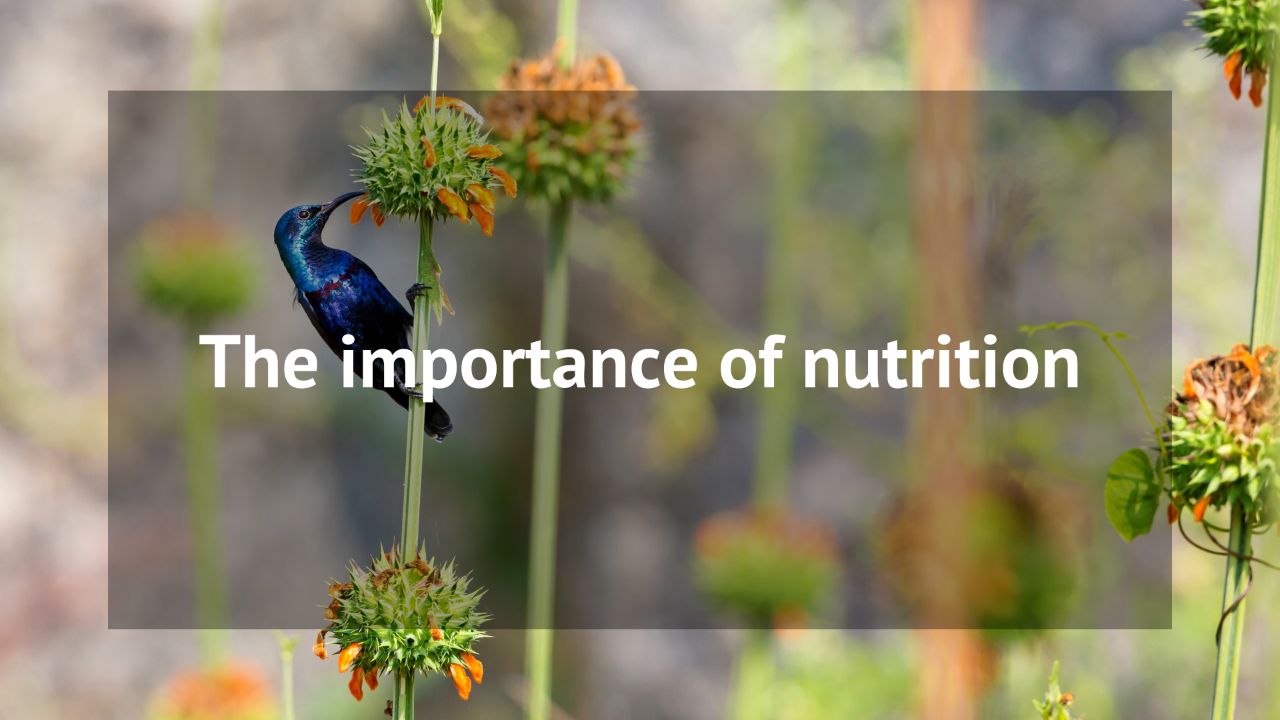
The importance of nutrition podcast
Adequate nutrition is essential for promoting optimal animal welfare, as it helps ensure that animals have the energy, nutrients, and vitamins they need to maintain good health and wellbeing. Inadequate or imbalanced diets can lead to a range of health problems, including malnutrition, obesity, and metabolic disorders, which can cause pain and discomfort.
Following a 24/7 approach to animal welfare, animals should have access to a species-specific and appropriate diet, therefore zoo staff should review the typical diets under human care, nutritional composition of wild diets, food presentation, availability and sourcing of food. In addition to providing appropriate nutrition, the diets of animals should also take into consideration their natural feeding behaviours and preferences. For example, frugivorous animals mostly rely on fruit or fruit-like produce from plants, while carnivorous animals should be provided with a diet that is high in protein ...
Ep98 Sam M. Crowell Jr. on the value of the humanities in education
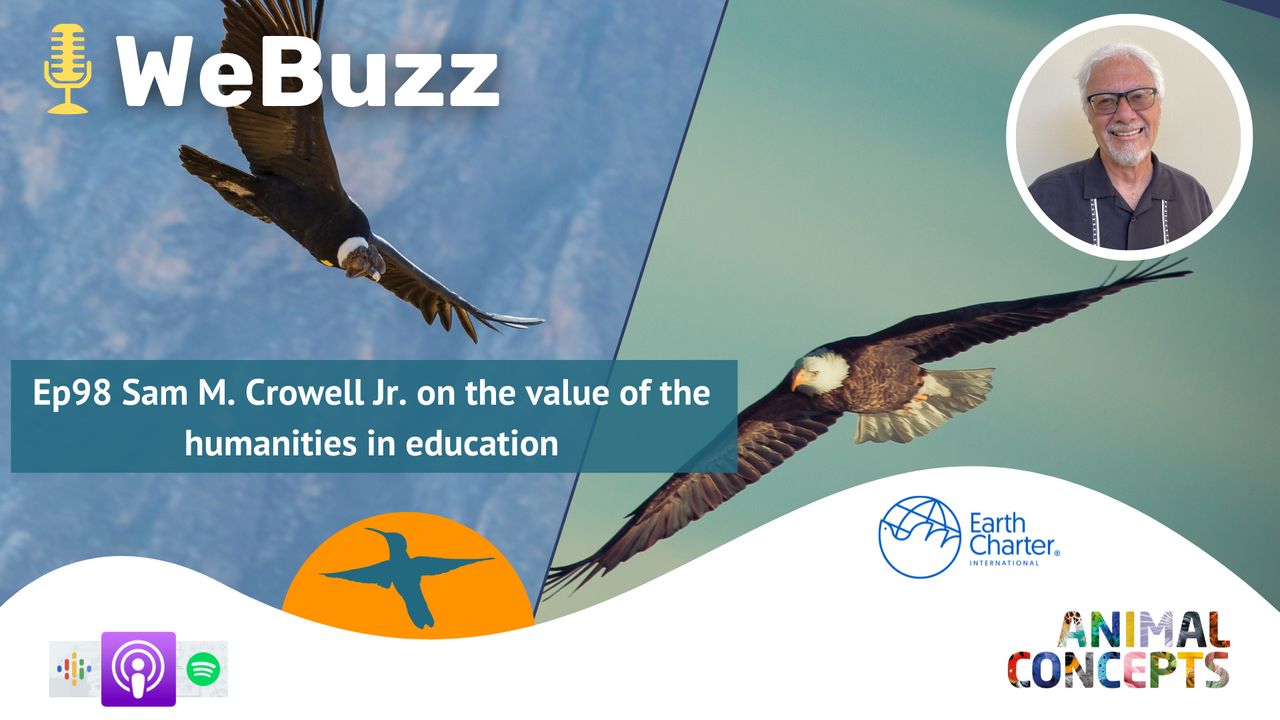
“I realised this isn’t new, this interconnection, this view of holistic understandings of who we are… back to indigenous cultures” - Sam Crowell
This podcast utilises the audio from the webinar that took place on 30 April 2021 on the Planetary wellbeing platform by AnimalConcepts.
Let us welcome Dr Sam M. Crowell Jr. He is a professor emeritus from California State University, San Bernardino. He founded the MA in Holistic and Integrative Education and is a founding member of the Network in Spirituality and Education. He serves as a faculty member of the Earth Charter Education Center for Sustainable Development and has been engaged in the Earth Charter movement for several years.
Sam informs us how his beginnings with his doctorate in the social foundations of education, influenced his career as a teacher. He enthused about how teaching, allows for collaboration and further learning. Furthermore, he highlights how his indigenous heritage has given influenced his teaching style and sen...
Ep97 Alicia Jiménez on integrating values in education - value reflections for change
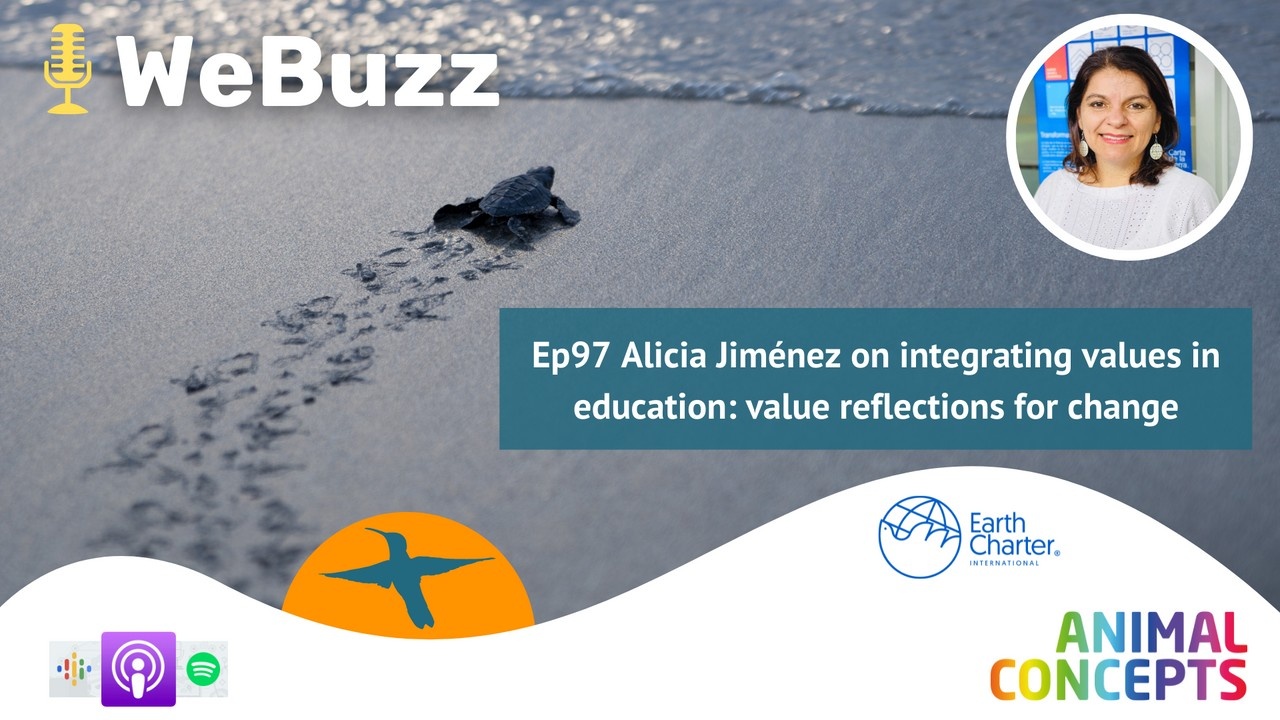
“Education can change minds, if you can change minds, you can change mindsets, you change the behaviours and change the collective, so it is crucial”. - Alicia
This week’s podcast utilises the audio from the webinar interview led by Alicia Jiménez which took place on the 29th of January 2021 from the AnimalConcepts platform.
Let us welcome Alicia Jiménez, the Director of Programmes at the Earth Charter International Secretariat in Costa Rica. She has been working in the field of conservation and sustainable development since 1998.
The conversation discusses why it is essential to work together to maintain nature. However, this would require a new mindset, through cultural transformation to expand our perception and rethink our values. Education is a key player in this and can influence change. The Earth Charter can be used as a guideline to produce lessons.
The Earth Charter is a working document, containing sixteen principles within four pillars in sixty languages to promote a glo...
Ep95 Rolf Winters on unlocking human potential, wisdom-knowledge based leadership and the Earth Charter
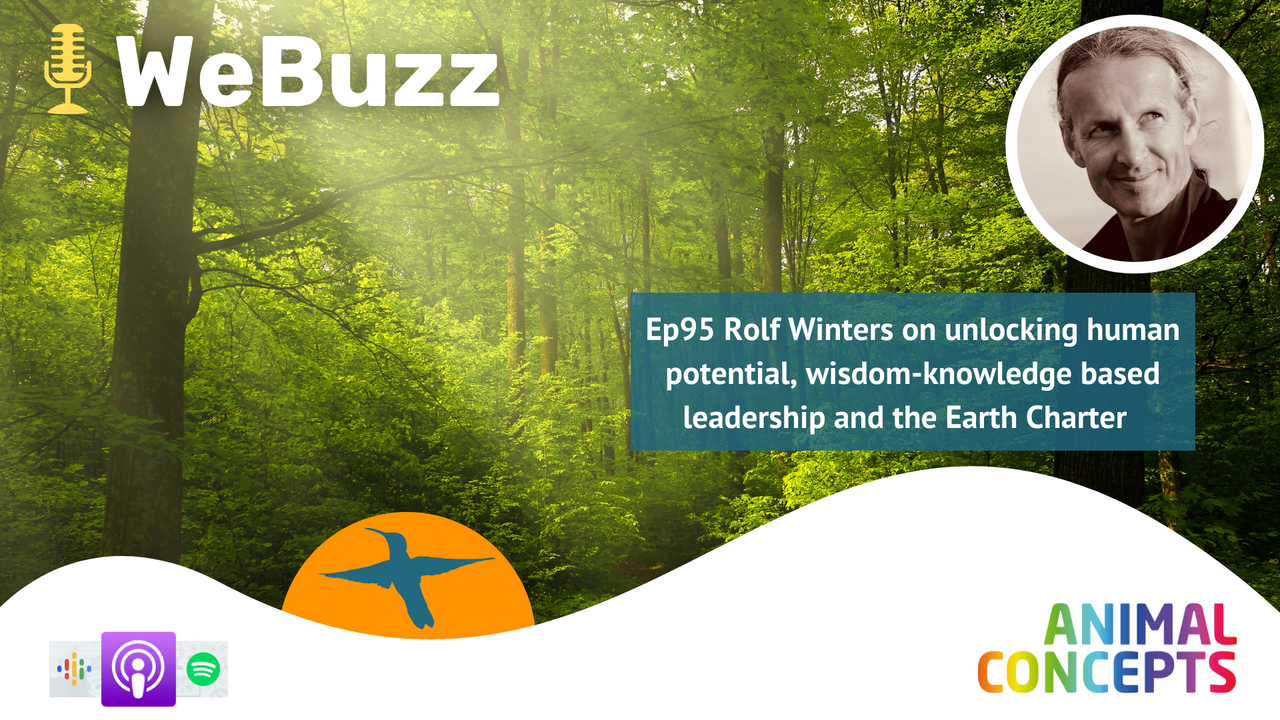
“Crises offer an invitation to do things differently. Embracing this opportunity clearly demands an overhaul of what is considered ‘leadership’ in our society. We need to up our game! What we need are masterful warriors with a crystal clear vision and the ability to incite the necessary inspiration, creativity and faith that catalysis transformational change. We need wise leaders instead of smart managers.” - Rolf Winters
Let us welcome Rolf Winters to WeBuzz. He is an explorer of life, a leadership coach, a public speaker, and Wise Leaders Ltd founder.
Rolf starts by explaining how the meaning of success is fluid and changes every few years, as well as being subjective to the individual and what they had aimed to achieve. He explains how in his profession, he aims to promote the spirit of an individual and groups.
Rolf shares with us about when he and his family lived with a clan of native Americans. They took themselves out of the Western system to live with nature and learn a ne...
Ep92 Charlotte Corney about growing up in a zoo, the Wildheart Animal Sanctuary, and the SERVIVAL campaign

Let's welcome Charlotte Corney, the former CEO of the Wildheart Animal Sanctuary in the Isle of Wight and the founder and trustee of the Wildheart Trust.
Charlotte tells us of what it is like growing up in the Isle of Wight Zoo (now the Wildheart Animal Sanctuary), and how agreeing to hand-raise Zia the Tiger cub committed herself to work with animals. She explains the journey from a zoo to a sanctuary, yet emphasises that throughout the sanctuary's history, each animal's life has always mattered.
“One thing, to this day, remains absolutely unshiftable, and that is that individual life matters to each and everyone of our animals, and never ever were our animals a commodity. The animal's life always comes first”.
Each animal in their care acts as an ambassador animal to promote the conservation and protection of animals. Charlotte gives us an example of SERVIVAL, a campaign to ban the breeding of exotic felids, such as Servals, with domestic cats. These ambassador animals contribute ...
Ep90 Jes Harfeld on ethics, breaking down disciplinary boundaries, & the importance of finding out why we are thinking as we are thinking right now
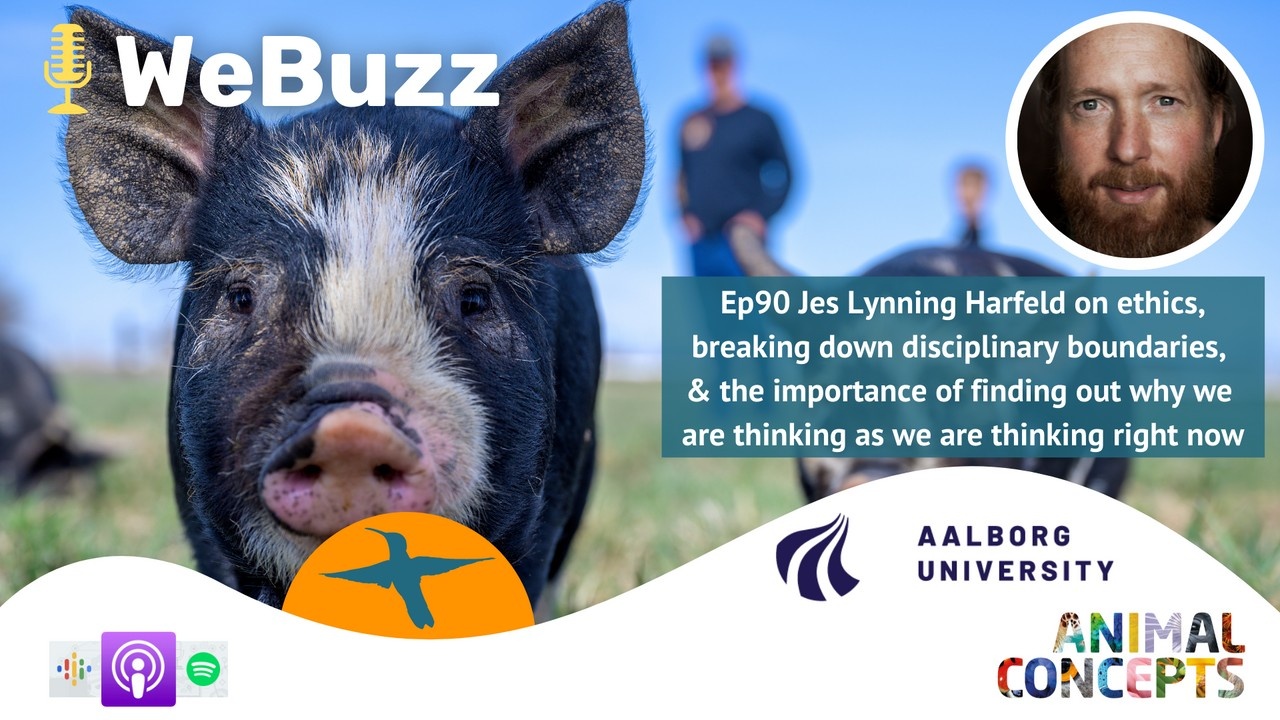
“I think one of the things we should do, and that I am experiencing more and more, is that, in order to think differently we have to look to the past, to find out why we are thinking as we are thinking right now”.
Let us welcome Jes Lynning Harfeld, an associate professor of applied ethics at the Centre for Applied Philosophy at Aalborg University, Denmark. Currently, his research focuses on the connections between animal welfare and ethics in the realm of human-animal interactions and the way that language interacts with thinking and character.
It was not until Jes’s PhD when he came across Peter Singer’s Animal Liberation, did he develop an interest in the ethical dilemmas regarding animal welfare. As such, he focused his thesis on the ethical dilemmas of modern agriculture. Querying, what it means to have a find and the different approaches of ethics and how it relates to animals. “Animal welfare understandings as types of interpretations, reading their signals then jumping to con...
Ep89 on gratitude and celebrating 2-years of online platforms through global collaborations for peoples, animals & the planet we share

“That is the real beauty, we often talk about global collaboration for animal welfare, or global collaboration for human wellbeing or for the greater community of life, or the planetary… What makes it so strong, is these different expertise, these different interests, these different talents, these different things that people bring… to effect change and the only way we can do that, is of course, is by doing it together.” - Sabrina Brando
Ep88 Suzanne Gendron on the importance of informal education in conservation activities

“We have a mission to connect people with nature to inspire stewardship for nature through those connections!... An emotional connection with nature through spending time in nature is more important than environmental education for inculcating that sense of stewardship in children… an important part of conversation”. - Suzanne Gendron
Let us welcome Suzanne Gendron, the Director of Sage Advice Consulting and the Former Executive Director of Zoological Operations and Conservation at Ocean Park Hong Kong.
In this episode, Suzanne shares with us the importance of educational opportunities outside of school to promote stewardship through creating a connection to nature.
Suzanne explains how Ocean Park aims to support Asian biodiversity and the strategies it has implemented to achieve this. She highlights crucially how conservation problems are not going to get better without cooperation.
Suzanne then shares some of the educational activities Ocean Park employs to inspire others to tak...

